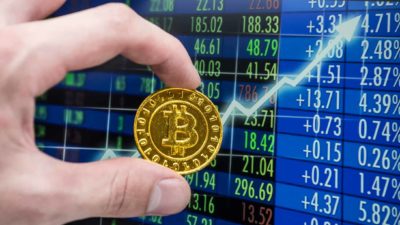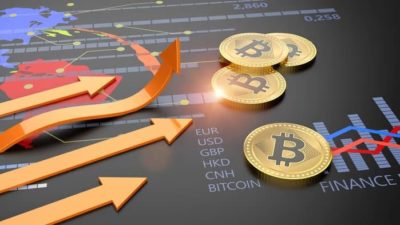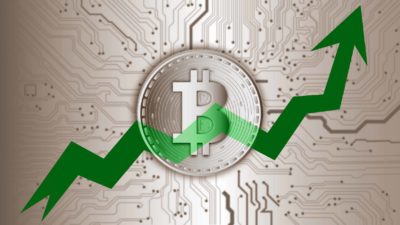The Bitcoin (CRYPTO: BTC) price stands at US$56,528 (AU$73,413) at the time of writing. That's down 3.4% over the past 24 hours but still up a tidy 94% so far in 2021, according to Bitcoin price data from CoinDesk.
That data also tells me US$55 billion worth of Bitcoin has been traded during the last 24 hours. With a market cap of US$1.06 trillion, Bitcoin remains the largest cryptocurrency in existence.
Can Bitcoin serve as an inflation hedge for ASX investors?
Long absent, inflation fears have been rising as the yields of global benchmarks, like 10-year US Treasury notes, have ramped up to pre-pandemic levels.
ASX investors' concerns with inflation primarily hinge on interest rates.
If inflation rises too far beyond the Reserve Bank of Australia's target rate (or the US Fed's target in the United States), the central banks will have little choice but to ratchet up interest rates to keep inflation in check. That, in turn, can hurt ASX share prices, particularly ASX growth shares, as investors can potentially find better (and safer) returns for their cash holdings.
Gold has long been touted as an effective inflation hedge. And while its performance in this role hasn't been perfect, holding some gold over the long-term can mitigate the impacts of inflation.
The question more ASX investors are asking now is, can Bitcoin – the so-called digital gold – function the same way?
Because there is a finite supply of Bitcoin, unlike fiat currencies like the US or Aussie dollars, there's some logic behind Bitcoin hedging against inflation. Though when the US Treasury yields spiked to 1.62% recently, the Bitcoin price fell hard.
What the experts say about Bitcoin as an inflation hedge
Cam Harvey is a senior adviser to Research Affiliates and a professor of finance at Duke University. As Bloomberg reports, Harvey says Bitcoin hasn't been in circulation long enough to make a definitive call:
What's going to happen to Bitcoin? It's really unclear. The price is not just driven by the money-supply rule, it's driven by other speculative forces. That's why it's multiple times more volatile than the stock market.
He adds that investors might shun riskier assets like Bitcoin and other cryptocurrencies rather than turning to Bitcoin to help offset the impact of rising inflation.
Marc Chandler, the chief market strategist at Bannockburn Global Forex, adds, "The kindling wood for inflation exists. One has to make a judgment about whether there's sufficient spark."
Chandler looks at "signals such as oil prices, shipping costs, or the price of semiconductors", all on the rise as the global economy gets back on track to gauge inflation.
Regarding the fast-rising Bitcoin price, he says, "The high priests of the cryptocurrency space look for any reason to help their case. I'm still hesitant to think that Bitcoin tells us anything about high-frequency economic variables."
Whether ASX investors consider Bitcoin as an inflation hedge, it sounds like the jury is still out on this one.








